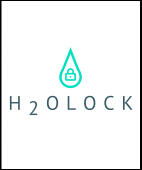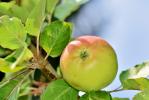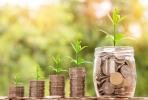
LIFE Project: Demonstration of a cost-effective solution to prevent evaporation losses, ensure water quality, and produce renewable energy in agricultural water reservoirs
- Type Project
- Status In progress
- Execution 2022 -2025
- Assigned Budget 1.782.371,00 €
- Scope Europeo
- Autonomous community Murcia, Región de
- Main source of financing LIFE
- Project website Web del proyecto
The LIFE H2OLOCK project aims to demonstrate a versatile and cost-effective solution, specifically designed for medium-to-large aquatic irrigation systems, to reduce water evaporation, suppress algae growth without the use of algaecides (after 15–30 days of use), and produce renewable energy for irrigation systems. The goal is to improve evaporation efficiency from 80% with existing solutions to 85–90%. These objectives will be achieved through the application of a novel combination of floating modules, floating mats, and flexible solar cell panels integrated into floating mats.
The European Environment Agency estimates that around 30% of EU citizens and 20% of European territory are affected by water stress on average each year. Agriculture accounts for around 22.5% of total freshwater withdrawals in the EU, with significant differences between Member States. In arid or semi-arid conditions (typical of the southern EU), irrigation accounts for almost 80% of agricultural water use. Agricultural water reservoirs (AWRs) play an important role in agricultural irrigation systems in Europe, especially in areas where water scarcity is a critical issue, such as southern Spain. However, AWRs are open to the atmosphere most of the time, resulting in significant losses. In the Segura basin alone, annual losses amount to 78 hm3, and evaporation affects between 6.5% and 11.7% of the water level.
However, existing solutions to minimize this loss are not cost-effective for agriculture. Furthermore, the sector's energy demand has increased due to the installation of more efficient irrigation systems. This has led to the installation of solar panels on drip irrigation systems to produce clean energy and balance costs. The panels also partially cover drip irrigation systems, helping to reduce evaporation without offering a cost-effective solution.
Furthermore, AWRs are vulnerable to excessive algal growth (eutrophication), which negatively affects water quality and can produce unpleasant odors. Algal growth can also block pumps, filters, and pipes, while its decomposition depletes oxygen levels in the water, further reducing water quality issues and releasing iron and nutrients from the sediments. There are a variety of methods for treating algal blooms, but their effectiveness varies widely and requires further research. A common solution is to cover the basins with windbreaks or floating covers on the water's surface.
- Demonstrate the technical feasibility of the integrated and cost-effective solution.
- Implementing photovoltaic panels on AWR roofs that fully cover irrigation energy demands (production of at least 50 W/m2), thus proving a particularly attractive energy solution for farmers in isolated areas or developing countries with intermittent access to fuel for generators.
- Reduce costs by 30% compared to the installation and maintenance of conventional technologies, with the goal of keeping them below €9/m2 at the end of the project.
- Demonstrate a versatile system design and configuration that can be transferred to all types of AWRs in Europe and elsewhere, regardless of climate and weather conditions.
- Conduct a life cycle analysis to demonstrate the environmental and social benefits of the solution.
- Reduction of evaporation from agricultural water ponds, saving between 70 and 120,000 m3 during the project and 1.3 Mm3 in 5 years.
- Sustainable water management by avoiding the use of algaecides: avoiding the use of 700 kg of algaecides during the project and 15 tons over 5 years.
- Increased solution profitability: savings of €59,006.21 for the Spanish demonstration center and €21,064.7 for the Portuguese demonstration center. Over five years, €1.5 million was saved for water treatment systems in semi-arid areas and €0.472 million for greenhouse areas.
- Reduction of CO2 emissions from farms: 77% reduction in CO2 emissions from irrigation and around 95% reduction in energy consumption.
- Social impact on employment with the creation of 35-60 jobs in 5 years.
- Coordinator/entity name: Jose Miguel Gimeno
Postal address: CALLE DEL ALAMO NUM 23 PLANTA 1 PTA, 30800, Murcia,
- ARADA INGENIERIA SL
- ARANA WATER MANAGEMENT SOCIEDAD LIMITADA
- GLOBAL FACTOR INTERNATIONAL CONSULTING SL
- COMUNIDAD DE REGANTES DE LORCA
- FUNDACION CENTRO TECNOLOGICO DE COMPONENTES
- AVIPE-ASSOCIACAO DE VITICULTORES DO CONCELHO DE PALMELA







